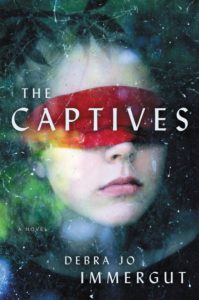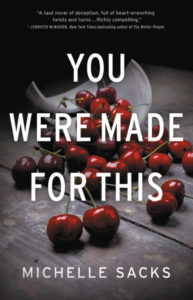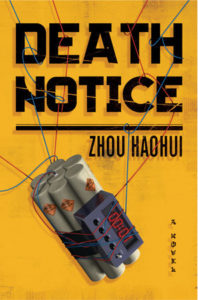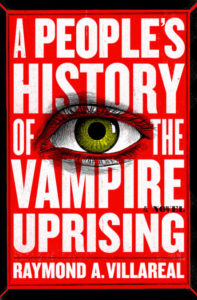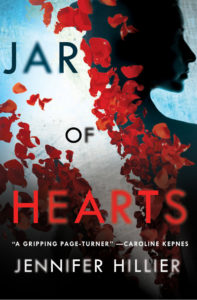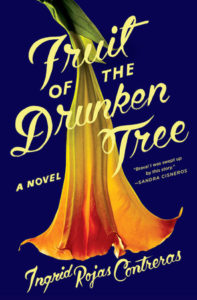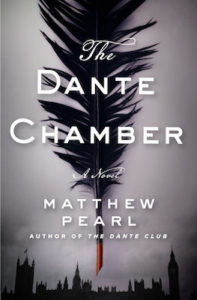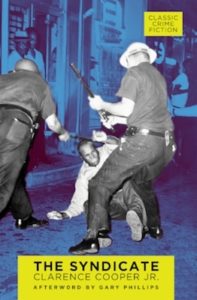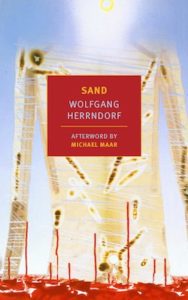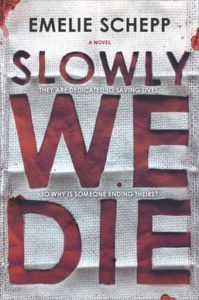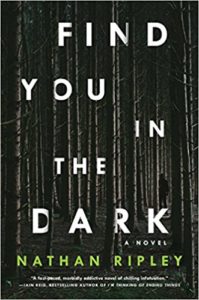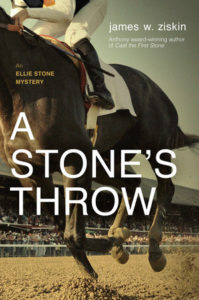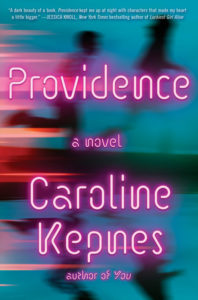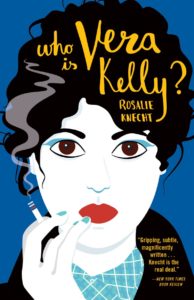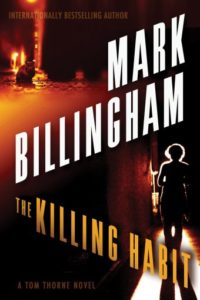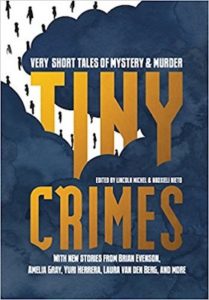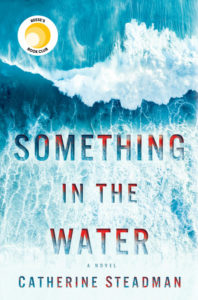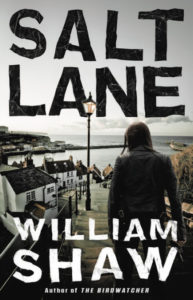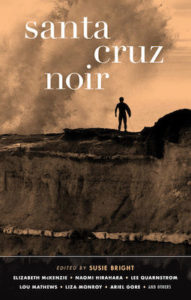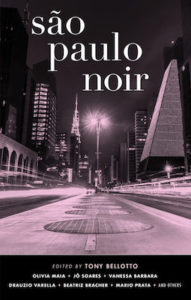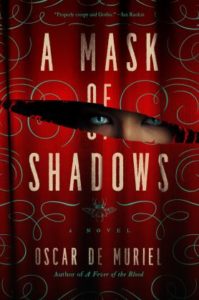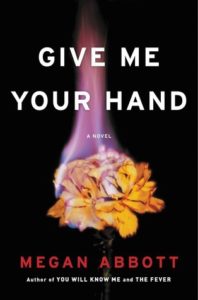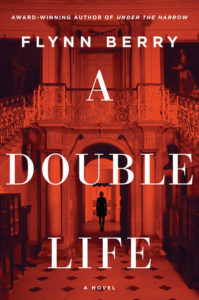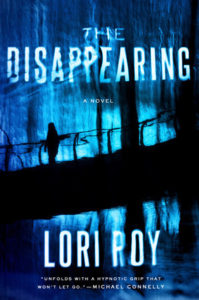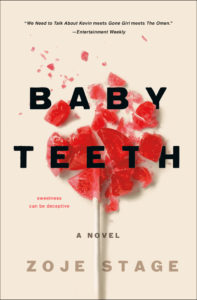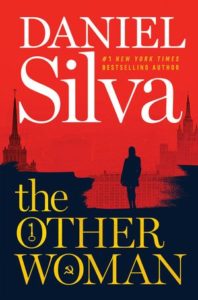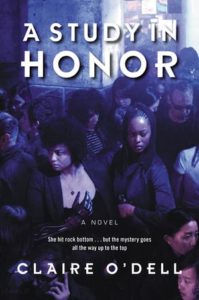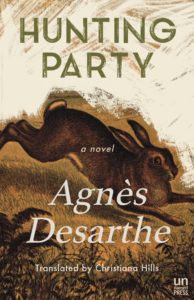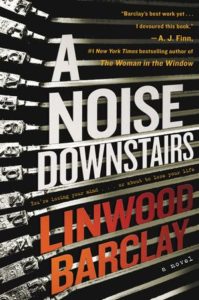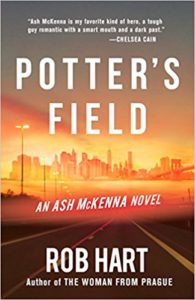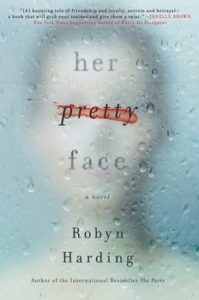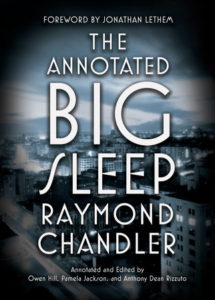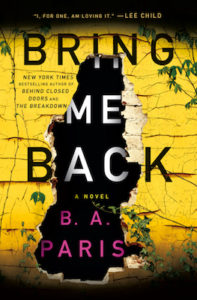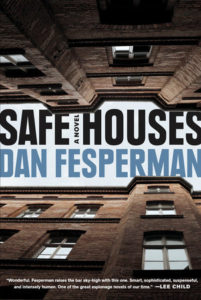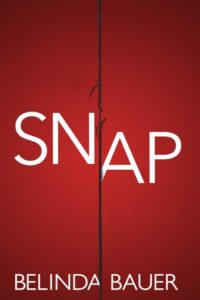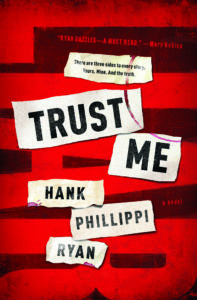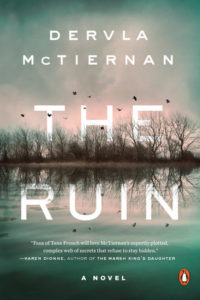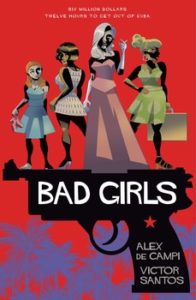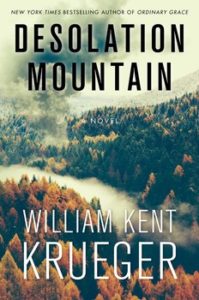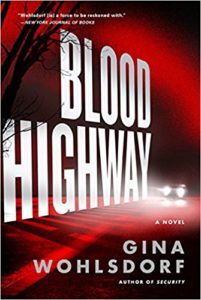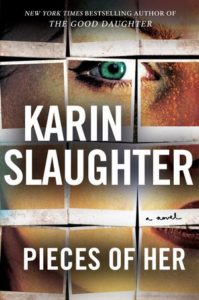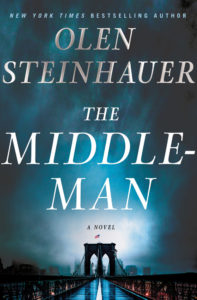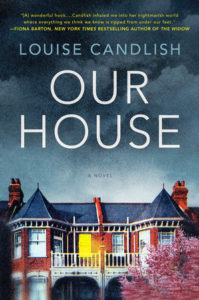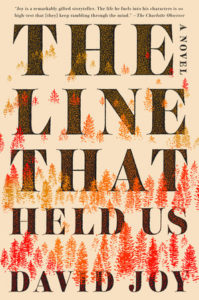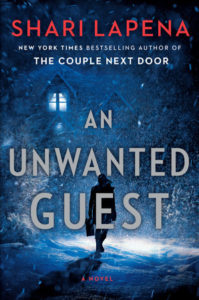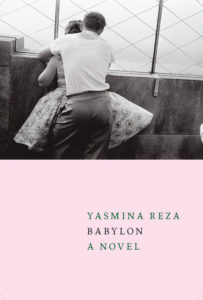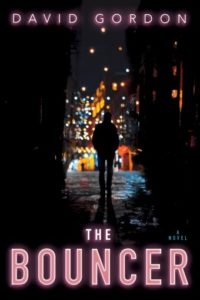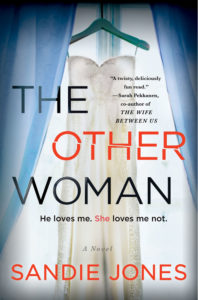Summer is the season for crime fiction. The days are long, the nights are hot, your blood is up and maybe, just maybe you’re going to get a little time to yourself on that much deserved vacation. Whether you go in for spine-chilling suspense, moody noirs, classic whodunits, splashy thrillers, or any other type of crime, chances are there’s a book for you coming out these next few months. The only question is how many novels are you going to devour this season? To help you prepare for the coming months’ bounty, we’re breaking down all the best and most anticipated crime fiction, mysteries, and thrillers coming out in June, July, and August. (See here for Part I of our Most Anticipated Crime, Mystery, and Thrillers of 2018.)
Recommendations come from CrimeReads editors (Dwyer Murphy, Molly Odintz, and Lisa Levy) and their band of accomplices, co-conspirators, informants, undercover agents, and moles. Be warned: there are 72 novels on this list. If you endeavor to read them all, we cannot guarantee that your vacation will end well or that your relationships will family and friends will survive the summer. But at least you’ll know how they end.
JUNE
Debra Jo Immergut, The Captives
The Captives is gripping from the start, and Immergut is a subtle, assured writer who knows how to handle the explosive premise: a prison psychologist, on the heels of a scandal, recognizes his newest inmate client as his high school crush. The Captives is intimate and emotionally complex and will keep on provoking you long after you’ve put it down. Expect the traumas and the deception to run deep, but also expect Immergut to handle it all with a strong sense of empathy.
Michelle Sacks, You Were Made for This
Merry and Sam and their infant son, Conor, have an idyllic life in the Swedish countryside. Sam is pursuing a career as an independent filmmaker while Merry tends to Conor and keeps house in a spectacular fashion: lots of cooking and baking, a spotless house, and a well-tended garden. The serpent who enters this paradise is Merry’s old friend Frank (a woman). At first, Merry especially is happy for the company, as Sam often has to drive down to the city for work-related appointments (well, that’s what he tells Merry, anyway). Gradually Frank begins to suspect all is not perfect in this picture of domestic bliss, but will she be able to stop what she thinks of as reckless behavior—the kind that could ruin lives.
Haohui Zhou, Death Notice
Death Notice is the first in a trilogy that’s hugely popular in China, not only in its printed form, but as a series soon entering its third season. The novel is the first work by Zhou HaoHui to be translated into English. The story is part of an increasingly popular genre in Chinese crime fiction, the serial killer thriller; in Death Notice, a sadistic murderer inspired by Greek mythology goes after a series of victims he believes to be deserving of their fate, for a plot that has enjoyed comparisons to that twisted classic of retribution, Se7en.
Raymond A. Villareal, A People’s History of The Vampire Uprising
Raymond Villareal started as a public defense attorney, and his experiences in the courtroom and in the state of Texas influence his take on the vampire novel. A People’s History of the Vampire Uprising takes as its premise the sudden appearance of vampires, and the civil rights issues raised therein, using vampires as stand-ins for those who experience other-ing by the state and as a way to explore growing xenophobia in the United States today.
Aya de Leon, The Accidental Mistress
In the third of Aya de Leon’s Justice Hustlers heist series, The Accidental Mistress, two sisters must reconcile their differences after one is framed and the other must get help from her community to clear her sister’s name. De Leon’s series features an empowered collective of strippers and explores issues of intersectional feminism while at the same time crafting intricate crime plots.
You-Jeong Jeong, The Good Son
If you want the same feeling you got from Bong Kee-Ho’s film Mother or Lionel Shriver’s We Need to Talk about Kevin, but have been dying for that story from the son’s point of view, then You-Jeong Jeong’s The Good Son is the summer read for you. Or, alternatively, if you’re a fan of the Macauley Culkey film The Good Son (hey, it’s the same title!) but always wanted to know more about what was going on in Macauley Culken’s head, then You-Jeong Jeong’s The Good Son would also make for a perfect summer read. When a young man wakes up covered in blood and finds his mother has been murdered, he must investigate the blank spaces in his own memories to uncover what happened. What emerges is a chilling portrait of psychopath, and a beautifully evocative tale of wealth and isolation in modern South Korean life. You-Jeong Jeong has been called the Stephen King of South Korea, although we’d prefer to compare her to Gillian Flynn or Patricia Highsmith.
Jennifer Hillier, Jar of Hearts
Hillier has been writing excellent creepy serial killer thrillers for a few years, including Creep and The Butcher. She’s upped her game considerably with Jar of Hearts, which weaves together the past and present of Georgina Shaw, who is incarcerated as the book begins. She’s in prison because the bones of her former best friend, Angela, were found in her backyard. Yet Geo’s (as Georgina is called) release from prison coincides with both the reappearance of figures from her past she’d rather not have anything to do with and an investigation of a series of murders of young girls is underway. Does Geo (or do any of her old friends) have a part in these new serial killings? Jar of Hearts is pretty much everything you want in a thriller: fast-paced with sympathetic characters and a whole lot of murder.
Ingrid Rojas Contreras, Fruit of the Drunken Tree
Set in a gated community in Bogota protected from Pablo Escobar’s reign outside, Fruit of the Drunken Tree follows a young woman with burdensome secrets who begins work as a maid in a privileged household, and finds love and duty pulling her in opposite directions. Her novel conjures the childhood need to discover what the adults are hiding, and explores issues of privilege verses protection in a time of change.
Cara Black, Murder on the Left Bank
We’ve adored Cara Black’s ultra-Parisian Aimee Leduc series ever since we were budding Francophiles, and we find Black’s stylish and capable heroine never goes out of fashion *groans at bad pun.* Cara Black specializes in the case-from-the-past-affecting-a-case-in-the-present subgenre, and has a private detective agency in France she consults (along with many other experts) to get all the details right. The entire series is set in the late 1980s through the 1990s, perfect timing for plots involving the legacy of France’s wartime actions and general post-war change. In Black’s latest, Murder on the Left Bank, Aimeé Léduc investigates the connections between her father’s death and an old man’s sudden death after confessing to corruption.
Matthew Pearl, The Dante Chamber
Looking for your next summertime thriller inspired by art and literature? Matthew Pearl, author of the literary thriller The Dante Club, returns to the world of the 1870s, but shifts from his setting from Boston to London, where a series of Dante-inspired killings has the literary establishment (and quite a few others) wondering about connections to similar killings in Boston, and arguing over Dante’s place in the canon (anyone who read Dante in school or works at a tattoo shop already knows who won that argument).
Clarence Cooper, The Syndicate
Clarence Cooper, Jr. wrote several noir novels in the mid-20th-century before dying alone and impoverished of a drug overdose, having received little recognition in his lifetime. Molotov Editions’ reissue of his classic take of criminals and shake dancers, The Syndicate, is a wonderful first step in restoring the crime community’s knowledge of a long forgotten writer, and one of the premier African-American voices in the genre.
Wolfgang Herrndorf, Sand
This is NYRB’s 500th issued work, and cause to celebrate all of the obscure delights to which this publisher has brought overdue recognition. In this dark comedy of post-colonial North Africa, a murder some Americans on a hippie commune soon leads to an overbearing intervention into the small country’s political infrastructure. While most works from NYRB are reissues, Sand is an NYRB original.
Emelie Schepp, Slowly We Die
Emelie Schepp is one of Sweden’s most popular crime writers, and one of the world’s biggest self-publishing success stories (she is now published by major publishers around the world) and yet her male Scandinavian counterparts have sadly gotten more attention abroad, until now. A twisted tale of scalpels, medicine, and revenge, Slowly We Die promises to be the thriller that catapults Schepp to being a household name here in the states.
Nathan Ripley, Find You in the Dark
This debut thriller is sure to have the crime community talking this summer, tapping into the true crime / amateur sleuth craze in a chilling way. Martin Reese is an ordinary guy—a father and a husband—with an extraordinary hobby: he collects files on serial killers and conducts his own investigations, anonymously tipping off police once he’s broken the case. But his success rate with cold cases drives police to suspect him of being involved in the killings. It’s a classic crime setup—forced to solve the case in order to clear his name—set within a thoroughly modern culture, all told by an author (Nathan Ripley aka Naben Ruthnum) with tremendous talent.
James W. Ziskin, A Stone’s Throw
In Ziskin’s latest novel to feature reporter Ellie Stone and her struggles to carve out a life as an independent woman in 1960s America, Stone goes to the races to track down a jockey and finds a murder mystery instead. As people interested in both Dick Francis novels and the high-stakes world of horse-racing, we highly approve of both Ziskin’s choice to go to the races.
Maria Hummel, Still Lives
We’re big fans of art mysteries here at CrimeReads—something about the lush backdrops, musty backrooms, glitzy auctions, eccentric figures, long cons, and powerful double dealings, with the transcendent power of art thrown in as the cherry on top. We’re in particular fans of any crime novel that incorporates performance art into the mix—Exhibit Alexandra, by Natasha Bell, and The Ghost Network, by Catie Disabito, are the only other two that come to mind—so we were pleased to see that Maria Hummel’s Still Lives continues this micro-tradition. Still Lives is a novel of the LA art scene, paintings of murdered women, and an artist who disappears just before her gala show, and makes a fine addition to the world of feminist performance art thrillers (and, you know, the world of mysteries as a whole, since the previous category is, admittedly, not the biggest).
Caroline Kepnes, Providence
With her first two novels, You and Hidden Bodies, Kepnes has built up a passionate readership around the mystery world, and Providence, her latest novel, delivers on all the promise of her early work. At turns thrilling, spiritual, supernatural, and noir, Providence is a multi-faceted story: a disappeared youth returned to his small-town in New Hampshire, now with special powers, a hard-nosed detective in Providence searching for answers in a string of disappearances; connections between them that can’t be explained by traditional police work. Kepnes’s version of New England is as charged and intriguing as Stephen King’s, the author whose work hers is often compared to, and with Providence, she has a bold new vision in place.
Rosalie Knecht, Who Is Vera Kelly?
People who know us know that two of our, say, top five interests include midcentury double identity stories and underground Latin American political/intellectual scenes. As it happens, those are the very same driving forces behind Rosalie Knecht’s new novel, Who Is Vera Kelly?, a strange and innovative take on the spy novel, one that’s noir and full of ambiguities, doubles, and double-crosses. There’s political intrigue, spycraft, solid location work, and all the things you would want from espionage fiction, but there’s also something strange and subversive going on in this story. Knecht has a live-wire intellect and we hope she sticks with spy fiction of some kind of another, because this is just the kind of jolt the genre (our beloved genre) needs now and again.
Liz Nugent, Lying In Wait
Liz Nugent’s take on women’s lives in 1980s Ireland is one of the most chilling psychological thrillers I’ve ever read. An aristocratic couple commits, then covers up, a murder, leading to dire consequences for their own family and that of the victim. Nugent uses her mystery as a way of exploring larger issues related to childbirth and women’s rights for the perfect novel to read post-referendum.
Mark Billingham, The Killing Habit
As fans well know, Billingham is one of the most engaging, entertaining crime novelists around. All his books are infused with wit, style, and a penetrating intelligence. In The Killing Habit, DIs Tom Thorne and Nicola Tanner see their investigations converge: narcotics, animal killings, and the trail left by a suspected serial killer.
Tiny Crimes, edited by Lincoln Michel and Nadxieli Nieto
Brevity is essential to crime fiction. That’s not to say I don’t like a good door-stopper now and again, or an intricately sub-claused sentence, but the kind of noir writing I like best was built out of the detective’s report, the straight-ahead account of a particularly mysterious or depraved event. The (very) short story, then, has a special appeal, not just as an exercise but as an homage to a literary tradition. That’s why Tiny Crimes has me hooked. This collection, edited by Lincoln Michel and Nadxieli Nieto, brings together a host of writers, most of them young, some of them crime writers, others not, all angling to tell the most riveting tale possible in just a few hundred words. There’s a nice feeling of competition to the book: like the contributors were embracing the challenge of who could spin the most compelling yarn. Some of my favorite contemporary writers are here, too: Laura van den Berg, Carmen Maria Machado, Adam Sternbergh, Yuri Herrera, and many more. I’ll be reading and re-reading throughout the month.
Tara Isabella Burton, Social Creature
When Louise is befriended by the rich and popular socialite Lavinia, her world blossoms into something unrecognizable, full of parties, champagne, high-quality drugs, and lots of good-looking and interesting people. Both writers, soon Louise is wearing Lavinia’s clothes, going out with Lavinia every night, and generally living the high life. Their friendship inches from extremely close to toxic, with Louise frantic about doing anything to make the mercurial Lavinia angry. Social Creature is a carefully plotted and brilliantly executed book, which dives deep into privilege, class, wealth, art, and female friendships.
Catherine Steadman, Something in the Water
Steadman may be best known here in the states for her role as Mabel Lane Fox in Downton Abbey, but she’s also got a cracking debut coming out this summer. A documentary filmmaker and an investment banker go on their dream honeymoon, only to discover something rotten at their tropical island resort. What follows would test the limits of any relationship—but especially this one.
William Shaw, Salt Lane
Shaw’s new novel is a gripping mystery and also a study of the rural-urban divide, as Sergeant Alexandra Cupidi’s reassignment from London to the Kent countryside results in an intensifying series of conflicts. A body in the marsh and a web of suspects leads to her latest investigation. Shaw’s work is subtly horrifying, and Salt Lane is no different: suspenseful and spine-chilling.
Santa Cruz Noir / Lagos Noir / Sao Paulo Noir
In June, Akashic has three of the more exciting recent installments to its wildly popular Noir city series: Santa Cruz, Lagos, and Sao Paolo. The Lagos volume is a standout, with Chris Abani serving as editor and tapping into the city’s vibrant literary scene, but Santa Cruz and Sao Paolo both have plenty to be excited about, especially if you’re a fan of seaside noir or Brazilian fiction. These are three vibrant, international cities with distinct cultures and social issues best explored through noir.
Oscar de Muriel, A Mask of Shadows
Oscar de Muriel’s A Mask of Shadows is part of one of our favorite subgenres—the theater mystery. Like the academic mystery, the theater mystery takes place in a closed society and delights in petty slights and speculative gossip. By featuring Bram Stoker, de Muriel grounds his novel in fact, while still taking pleasure in mixing up our expectations—after all, Stoker appears not in relation to any vampirical subplot, but in his role as one of the luminaries of the London theater.
JULY
Lucy Atkins, The Night Visitor
This one represents another of our favorite subgenres of mystery—the academic mystery in which the reader turns an examining eye on those who are used to doing the examining themselves (although perhaps more of crime fiction is about turning a voyeuristic lens on the voyeur than one might think—what are police, journalists, and private detectives but close observers by a different name?). In The Night Visitor, a researcher becomes obsessed with the diary of a 19th century woman scientist, and must trade increasingly dear favors to the academic who discovered the diary in order to retain access to the precious document.
Evgenia Citkowitz, The Shades
This haunted tale follows a couple mourning the loss of their teenage daughter. When their son heads off to boarding school and a mysterious young woman strikes up a relationship the couple, they find themselves happily distracted from their loss, yet both the family and the new interloper have secrets of their own. This is a classic “dysfunctional family haunted by ghosts is disrupted by interloper” plot, and harkens back to such ghostly thrillers as du Maurier’s Don’t Look Back.
Megan Abbott, Give Me Your Hand
Few authors inspire more fervor than Abbott these days, and with good reason. Her last novel, 2016’s You Will Know Me, was a breakout hit, and since that time, Abbott’s reputation has only grown. Give Me Your Hand is a taut, atmospheric study of female friendship and competition, set against the world of science research. Plan on seeing this book everywhere this summer, and plan on having a few breathless conversations with strangers over the magic of Megan Abbott.
Flynn Berry, A Double Life
Last year’s winner of the Edgar Award for best debut novel, Berry is back with an incisive study of privilege, violence, and family in Britain. A London doctor is informed that after decades of searching, police have apprehended her father, a former lord turned fugitive wanted for murder, based on the case of Lord Lucan from the 1970s. A Double Life is suspense at its very best, a penetrating investigation into crimes both intimate and expansive.
Lori Roy, The Disappearing
Roy’s new novel is impossible to put down or forget, a masterful show of suspense. A small town in Florida is full of secrets, especially when it comes to the eery historical plantation, the disappearances of several young people, and its dark relationship to a serial killer. All the claustrophobia of small town life is there, with an added intensity as the search for answers propels a local mother who vowed she would leave the place behind.
Zoje Stage, Baby Teeth
As anyone who has read the original Grimm’s Fairy Tales would agree, children can be terrifying, morbid, and gleefully amoral, and we love them all the more for it. We’re fascinated by the logic of child psychopaths, which does not differ much from child logic in general, but leads to far worse consequences, so we’re looking forward to Zoje Stage’s Baby Teeth both for Stage’s uncomfortable portrayal of childhood amorality and for her ability to capture a child’s view of the world.
Daniel Silva, The Other Woman
Silva’s spy thrillers are the event of the summer, for many espionage-heads. The Other Woman is the eighteenth in the Gabriel Allon series, and the characters feel as timely and complex as ever. Silva’s latest wades into the new intelligence era of Russia versus the West, this time with Allon’s alliance of spooks chasing after the assassins who take down a would-be Russian defector. Silva’s prose has a crisp elegance, and the worldview he offers up is sophisticated and complex, a crash course in the modern-day espionage hotspots and modus operandi.
Claire O’Dell, A Study in Honor
This is the queer futuristic feminist version of Sherlock Holmes that we never knew could exist but now can’t imagine the world without. After losing an arm in a futuristic civil war brought on by contemporary American politics, Dr. Watson heads to D.C. and finds a mysterious roommate in Sara Holmes. The two team up to investigate the strange deaths of ex-soldiers previously stationed on a base with plenty of secrets. As the danger grows, so too, does Watson and Holmes’ complex romance. Hopefully a version of Sherlock Holmes featuring two queer women of color fighting the logical next step in Trump’s America will make it to the screen as quickly as all those more traditional (and frankly, a bit boring. With the exception of Benedict Cumberbatch. We love you Benedict!!) versions of Holmes.
Agnès Desarthe, The Hunting Party
One has to love to a crime of opportunity, and what better way to take advantage of circumstance to commit a crime than a murder in a hunting party? Of course, a hunting party, with its aristocratic resonances in the book’s European setting, is also a perfect take on traditional mysteries involving aristocrats and what we’d call a “locked-room excursion.”
Isabel Ashdown, Little Sister
This chilling psychological thriller is set on the Isle of Wight. Sisters Emily and Jess reunite after a long separation, rekindle their childhood closeness, and are soon living together, along with Emily’s baby. When the baby disappears while in the other sister’s care, past secrets come to the fore and everyone in the family becomes a target of suspicion. As someone with a sister, I always enjoy stories where sisters either help each other or, as in this case, slowly tear each other apart…
Wallace Stroby, Some Die Nameless
Stroby is a master of the high-octane crime novel, a perfect combination of pace and atmospherics. His latest, Some Die Nameless, sees an ex-military man living on a houseboat straight out of John D. MacDonald, when his past sins come back to haunt him. His path intersects with an investigative reporter from up north, and together they stagger across an intricate and sinister government conspiracy. This is a page-turner in the best possible sense.
Linwood Barclay, A Noise Downstairs
A psychological thriller that will haunt you long after the last page. Barclay’s latest novel has aspects of the campus novel, gothic literature, meta-fiction, and of course, mystery. A college professor who witnesses the aftermath of a murder receives the gift of a typewriter…that seems to be typing of its own volition, and seems to be connected to the murder. A Noise Downstairs is a strange and insidious story, packed with psychological insights.
Rob Hart, Potter’s Field
Hart’s newest is a distinctly New York crime novel and doesn’t flinch at taking on one of the city’s most pressing issues of the day: the spread of opioids and the rise in overdose deaths. PI Ash McKenna wants to go legit with a PI license but old colleagues draw him back into a more shadowy world, and soon he finds himself caught in the city’s increasingly deadly heroin wars.
Peter James, Dead if You Don’t
The international phenomenon that is Peter James is back this summer with the latest in the DS Roy Grace series. In Dead If You Don’t, a gambling addict in deep to the local books goes to the Saturday football game, where his son is taken by kidnappers. Grace is called in and has to wade into a dark underworld of organized crime, sports betting, and much, much worse.
Sheena Kamal, It All Falls Down
Nora Watts, the sardonic, troubled narrator of Kamal’s previous novel, The Lost Ones, returns in It All Falls Down. In both books, Nora is tasked with uncovering truths and finding people: in Lost Ones, it’s her daughter (who she gave up for adoption) who’s missing. It All Falls Down finds Nora searching for her own parents. Her quest takes her from her home in Vancouver to fleabag hotels and derelict buildings in Detroit, where her father, who later committed suicide, grew up. The more Nora learns about the past the more questions she has: how did her father meet her mother? Could she still be alive? And, the most question she’s grappled with her entire life: Why did her parents abandon her and her sister?
Robyn Harding, Her Pretty Face
Robyn Harding’s second foray into claustrophobic domestic worlds takes us to an elite private school, where a struggling mother has managed to place her difficult son, in hopes the structured lifestyle will cure him of his unpredictable behavior. Unfortunately for the mother’s hopes of a new worry-free life, both mother and son quickly become ostracized from the school’s snobbish community, and their only friends at the school have their own troubles. Her Pretty Face is part of a long tradition of writers who use crime fiction to examine closed communities.
The Annotated Big Sleep, edited by Owen Hill, Pamela Jackson and Anthony Rizzuto
Serious crime fans will flock to this new edition of Chandler’s 1939 classic, no doubt. The annotations from Owen Hill, Pamela Jackson and Anthony Rizzuto are engaging and learned, a new window onto a familiar text, and Jonathan Lethem’s forward is an insightful take on the seminal noir. If you haven’t re-read The Big Sleep in, say, the last year, you might well find yourself caught up in the prose, but take the time to really study the notes, since the editors bring alive Chandler/Marlowe’s L.A. in breathtaking fashion, and around every page there’s a worthwhile factoid or interpretation. Plus, weren’t you looking for a new reason to return to this one? Here at CrimeReads, The Big Sleep is pretty much part of the Talmud.
B.A. Paris, Bring Me Back
B.A. Paris established herself as a mature, knowing and rather wicked new voice in the genre with her bestsellers Behind Closed Doors and The Breakdown, which took on issues of culpability and denial; her new book, Bring Me Back, continues to grapple with the morality of being with a problematic man. Its premise? Years after a woman’s disappearance, her husband and her sister, drawn together by grief, have tried to make a new life, yet both are keeping secrets from each other, and questions remain about the tragedy that brought them together.
Michael Rutger, The Anomaly
Usually when we read a book, and love it, but have no idea why, it becomes a bestseller immediately, so here’s hoping for the same for Michael Rutger’s The Anomaly. When a conspiracy theorist more interested in views than in discoveries finally stumbles on an actual conspiracy, all hell breaks loose. This is like Indiana Jones for everyone who knew Jones was a complete a-hole but still wanted to watch the movies.
Dan Fesperman, Safe Houses
Dan Fesperman, with his penchant to roam all over the place with his historic and contemporary settings, may be the best spy novelist you’ve never heard of, although that’s changing, with his last book, The Letter Writer, greeted with widespread acclaim upon release. His new novel, Safe Houses, is an elegant work of espionage fiction. When a former spy and her husband are murdered, their daughter hires an investigator to look into her mother’s past in search of answers, desperate to save her brother from taking the blame.
Belinda Bauer, Snap
Bauer shocked us all with her brilliantly written (and titled) Rubbernecker, the story of a medical student rather too interested in what’s happened to a cadaver, and her wickedly mature stories have earned her comparisons to that dark lady of British crime, Ruth Rendell. Her latest novel, Snap, feels a bit like Cynthia Voigt’s Homecoming, if the kids were solving a murder, or The Boxcar Children, if, you know, the kids were solving a murder.
Hank Phillippi Ryan, Trust Me
Hank Phillippi Ryan has had a very exciting life (including being mentioned in the credits of Scorsese’s Taxi Driver), and has managed to write quite a few mystery novels while continuing to be interesting (#lifegoals). Trust Me, her latest mystery, is a psychological and sinister story. A journalist mourning the death of her family years earlier becomes involved with the case of a woman accused of killing her own child, for an intriguing mashup of courtroom thriller and domestic suspense.
Dervla McTiernan, The Ruin
Set in Galway, this searing debut brings together procedural and psychological thriller for a fascinating portrait of small-town Ireland and its big city problems. Addiction, suicide, corruption, and desperation all play their part in this intricate, unsettling noir. Ireland’s experiencing an incredible new wave of women crime writers, spearheaded by the indomitable Tana French, and Dervla McTiernan is a fine new addition to a growing scene.
Riley Sager, The Last Time I Lied
Riley Sager’s loving ode to the slasher film, Final Girls, was last year’s perfect summer read, and his followup promises to be just as good for the beach (and even better for the edge of a lake, as the most mysterious and scary body of water. Whatcha hiding, lake?) The Last Time I Lied takes place at a summer camp, when a game of two truths and a lie turns dangerous, and years after, when a former camper returns to Camp Nightingale, desperate to discover its secrets.
JP Delaney, Believe Me
As a British actress living without a green card in New York City, Claire Wright is compelled to work for a firm of divorce lawyers. Her job is simple: she makes herself available to men whose wives are looking for evidence of their husbands’ cheating, tapes the encounter, and then turns it over to her contact from the law firm who then passes it on to the client. She’s very good at entrapment, knowing how to make men proposition her after just a few minutes of chatting. The arrangement gets complicated when one of her clients is murdered, and the cops are convinced the husband did it. The police then want Claire to use her skills to lure the husband into confessing, and she’s up for the challenge: it’s just acting, right? To ensnare the husband, though, Claire is going to have to give the performance of her life.
Alex de Campi and Victor Santos, Bad Girls
Cuba before the fall has long been a subject of interest in our genre, and who could forget the kiss of death Michael gives to Fredo just before they exit the city? Alex de Campi and Victor Santos, with their new graphic novel Bad Girls, both partake of this long tradition and turn it on its head. The basic setup: three women have twelve hours to get six million dollars out of Cuba, on New Year’s Eve, 1958. The gorgeous colors and clean lines of this graphic novel complement the stylish storytelling, for a noir comic not to be missed.
AUGUST
Kellye Garrett, Hollywood Ending
Kellye Garrett won the Agatha Award for Best First Novel for her debut, Hollywood Homicide, and we expect her second installment in her Detective by Day series, featuring protagonist Dayna Andrews, to be just as charming. Hollywood Ending takes place mid-awards season, and while fashion was key to solving the crimes in Hollywood Homicide, we can only hope that as many dazzling outfits make their way through the pages of Garrett’s second.
Lori Rader-Day, Under a Dark Sky
A grieving widow goes to a remote area of Michigan on a trip booked by her late husband only to find she’ll have to share her cabin getaway with a group of friends reuniting to relive their college glory days. Her solitude is even further interrupted when one of her unwanted neighbors is murdered, and she investigates the tight-knit group and their many internecine struggles. Lori Rader-Day’s noir style and traditional settings have pulled us in from her first book, and this is a fine addition to her growing oeuvre.
William Kent Krueger, Desolation Mountain
The bard of Minnesota crime is back this summer with a new installment of the Cork O’Connor series. The latest is a weighty and thrilling look at father-son relationships, the allure and dangers of the natural world, the power of prophecy, jurisdictional battling, backwoods survival, and corruption at the highest levels of business and government. A private plane crashes on the remote Desolation Mountain in northern Minnesota, killing a prominent politician and setting off a search for answers and survivors. The crash also fulfills a vision Cork’s son, Stephen, has been having most his life. Kreuger’s novels have rightfully earned him a cult following in the crime world, and Desolation Mountain is one of his most soulful novels to date.
Gina Wohlsdorf, Blood Highway
Gina Wohlsdorf’s first thriller, Security, proved her sense of the cinematic and the stylish, and her second looks to cement her reputation as one of the most visual and stylized crime writers around. While both Security and Blood Highway feature scrappy protagonists with comic book names denoting moxy and toughness, Security was a locked room mystery where Wohlsdorf spent the better part of the action playing with contained space, while Blood Highway takes its show on the road, as a young woman and her fugitive father go on a hell-raising road trip in search of some cash.
Karin Slaughter, Pieces of Her
As her fans patiently await a new installment in Karin Slaughter’s Will Trent series, she has hardly been idle. Rather, she’s been turning out stunning standalones which delve into family secrets and dynamics: The Kept Woman, The Good Daughter, Cop Town, and Pretty Girls. Pieces of Her is Slaughter’s most ambitious novel yet, a sprawling story in which a woman, Andrea Cooper, discovers that her mother, Laura, has a secret past after the two of them are victims of an explosive device in a mall. Laura won’t tell Andrea (known as Andy) anything about the secrets she’s been keeping for over 30 years, so Andy goes searching herself for her mother’s story, never guessing that the pieces she finds add up to yet another mystery.
Olen Steinhauer, The Middleman
To even describe the plot of this thriller—a bit of a departure for espionage master Steinhauer—would be to give too much away. There is a secret, decentralized movement in America known as the Massive Brigade, which wants to overthrow the government, and one day 400 people disappeared from their lives, leaving families, cell phones, and their identities in order to participate in the coming revolution. The leader of the brigade is Martin Bishop, a crusader for social justice, and as the book unfolds we learn much more about Bishop, his followers, and whether their dream of revolution becomes reality.
Louise Candlish, Our House
Fiona Lawson has had it with her husband, Bram: he drinks too much, and, as Emily sees one night in her children’s playhouse in their backyard, he’s perpetually unfaithful. Yet there are two kids to consider while Emily and Bram work out their divorce, so they try a novel, trendy means of co-parenting called the bird’s nest. The bird’s nest is the family home in quiet suburban Alder Rise, which neither one of them want to sell. So instead of the kids getting shuttled from one parent to another, Fiona and Bram switch off between living at the house and at a flat they’ve rented nearby. The arrangement is working fine until the day Fiona comes to the house a bit early the night she’s supposed to stay there and finds a couple moving into her house, which Bram had emptied without Fiona’s knowledge. The machinations which lead to this predicament are told from both Bram and Fiona’s point-of-view, making this a clever take on the saying that there are three versions of the truth: his, hers, and the facts.
Jon McGregor, The Reservoir Tapes
For this one’s immediate predecessor, Reservoir 13, McGregor was rightly given a nod from the Man Booker Prize longlist, meaning this will be one of the most highly anticipated novels around come August. In The Reservoir Tapes, McGregor continues his reinvention of the familiar village disappearance story, introducing a number of new voices and perspectives to tell the story not only of the mystery, but of the town, in its full complexity and humanity. It’s hard to prepare readers for the power of this unfolding McGregor series: how incisive the prose, how deep the insights run. Suffice it to say, McGregor is one of the most profound authors at work today, and the Reservoir novels are a must-read for anyone who believes in the significance and potential of crime fiction.
Laurie Petrou, Sister of Mine
This is just one of the many books coming out about sisters this year (there’s definitely a trend) but one of the most compelling in its subject matter. Two sisters team up to get rid of one’s unwanted husband, yet freeing themselves from the tyranny of men opens up deep wounds from the past, and the bonds between sisters grow ever closer to breaking.
David Joy, The Line That Held Us
David Joy has become one of the strongest voices of Appalachian noir and of Southern fiction over the past couple of years, and his latest cements this reputation. One of two books on this summer preview to feature hunting accidents, The Line That Held Us follows a hunter in pursuit of a buck that has long-evaded him, only to accidentally kill a man digging for ginseng in the woods instead. Even worse, he’s killed a man whose family has a reputation for vengeance.
Rena Olsen, With You Always
Rena Olsen works as a marriage therapist, which is why the relationships in her books are so realistically messed up. Her first psychological thriller, The Girl Before, begins with the slow untangling of an abusive relationship, while her followup, With You Always, takes us through how such a relationship comes to be, but the theme of each is the same—the harm of magical thinking and unquestioning love in relationships. Olsen is also fascinated by closed societies and how they enable abuse, and while her first book took us into literally a backwoods compound, her new book takes place in a church whose members become increasingly isolated from the outside world as they are initiated into the church’s inner echelons.
Shari LaPena, An Unwanted Guest
Shari LaPena won our cold, jealous hearts with her slow-simmering domestic thrillers, and now we can’t wait to see what she does with a locked room mystery. Her new novel takes place in a resort during a blizzard, and thus should be the perfect read to cool down as the summer stretches on and on, and that warning from Game of Thrones becomes more of a fervent prayer: Please, let winter come…
Martin Solares, Don’t Send Flowers
Solares is Mexico’s answer to Don Winslow: a dark, propulsive, violent vision of cartel dominated territory in the northern Gulf region, with political corruption and civil society’s failures exposed (and Don Winslow is the US’s answer to Elmer Mendoza, so the influences come full circle). In Don’t Send Flowers, an industrialist’s daughter disappears and Carlos Treviño, the only man who can take on corrupt local forces is summoned to work the case. Solares has a high-octane style that will be familiar to readers of US thrillers, and he knows the terrain—cartel run depots in northern Mexico—as well as anyone around.
Bibliomysteries Volume 2, edited by Otto Penzler
For years, those in the know have been savoring the latest “bibliomystery” commissioned by Otto Penzler’s Mysterious Bookshop and penned by the luminaries of the crime world. (Each story involves the world of books, bookstores, rare editions, etc.) Now, a new omnibus collection (volume 2, no less) brings these gems together between two covers. Contributors include Ian Rankin, Thomas Perry, Joyce Carol Oates, Megan Abbott, and Elizabeth George. Penzler and his beloved bookshop are co-conspirators here at CrimeReads, so we may be partial, but this volume is a necessity for serious crime fans.
Yasmina Reza, Babylon
Looking for the crime novel version of the free-range chicken skit from the first episode of Portlandia? Probably not, but we’re all happy to know that one exists. After a dinner argument over chicken leads to murder, it’s up to the neighbors to help a murderer cover up the untimely death of his wife. Babylon is a darkly comedic take on relationships and apartment building, and is very, very French.
Sophie Hannah, The Mystery of Three Quarters
While Sophie Hannah is already renowned for her original mysteries, we couldn’t be happier that she’s been asked to be the official continuer of Agatha Christie’s iconic character of Poirot. In this, her third Poirot adventure, the detective, his mustache, and his little gray cells solve a murder involving the posh socialites of 1930s London.
David Gordon, The Bouncer
Gordon, author of The Serialist and Mystery Girl, is back with another fresh take on the crime novel: this time a madcap thriller about a strip club bouncer in Queens who gets dragged into an FBI investigation, a perfume heist, and trouble with just about every mobbed-up figure running around the borough. Gordon is an Elmore Leonard acolyte, but his latest novel is also working in the tradition of New York City crime: the gritty, cynical, and riotous novels that defined the city in the late 60s and 70s, especially the many wild stories of Donald E. Westlake.
Sandie Jones, The Other Woman
When Emily randomly meets Adam one night at a pub, she doesn’t think she’s setting herself up for a nightmare. Yet she’s trapped in a psychological suspense novel—and a very good one at that—so we can predict that the course of love is going to be littered with obstacles. The most formidable challenge Emily faces is getting along with Adam’s mother, Pammie. Son and mother are unusually close, and soon Emily fears Pammie is trying to sabotage their blooming relationship. Yet Adam does not see the conflict between Emily and Pammie (i.e. Pammie’s constant gaslighting and undermining of Emily), so Emily is on her own. Can she save her relationship from the interventions of a meddling mother-in-law?
Steve Hamilton, Dead Man Running
After a long hiatus from his Alex McKnight series to write the first two in his Nick Mason novels, Steve Hamilton returns to the character that first brought him critical acclaim with Dead Man Running. When a serial killer hints to the FBI that one of his victims is still alive, he has only one condition for her release: Alex McKnight must come along for the ride.
Antoine Laurrain, Smoking Kills
Years after quitting, a man decides to pick up the smoking habit again, only to find no satisfaction from his cigarettes unless he pairs his consumption with killing. This dark parody of classic romans noirs is one more reason to love the French, and we can’t wait to read it.
Maurizio de Giovanni, Nameless Serenade
The Commissario Ricciardi series continues to shine a light on corruption, crime, and family entanglements in the Italian city of Naples, certainly one of the most noir cities on earth. In the newest installment, a local boxer returns to the homeland after years in America, and tragedy in the ring, only to become the prime suspect in a murder. De Giovanni’s work is perfect for anyone who wants to be transported to the dark underbelly of crime in the Mediterranean’s marginal cities.


